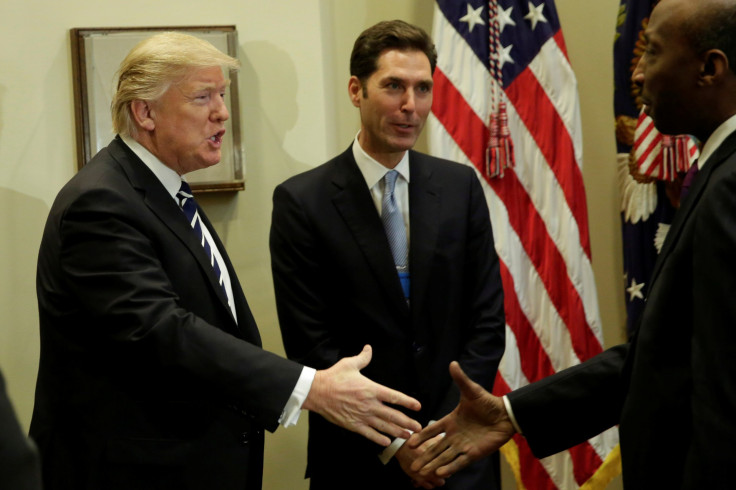Why Are Medical Costs So High? Trump Meets With Big Pharma To Push For Lower Drug Prices

Adding to a growing list of White House meetings with corporate executives, President Donald Trump held talks Tuesday with the leaders of pharmaceutical companies, in an effort to push them to lower the prices of their products. In return, he pledged to speed up federal approval for new drugs.
“The U.S. drug companies have produced extraordinary results for our country but the pricing has been astronomical for our country—we’ve got to do better,” Trump said at a Tuesday morning press conference. “We’re also going to be streamlining the process so that from your standpoint, when you have a drug, you can actually get it approved if it works instead of waiting for many, many years.”
The CEOs present represented Eli Lilly and Company, Johnson & Johnson, Merck & Co. Inc., Amgen Inc., Novartis AG and Celgene Corp., while a top lobbying group for the sector, Pharmaceutical Research and Manufacturers of America, was also present, Reuters reported.
In the press conference that followed, reading from a prepared script, Trump railed against foreign buyers of American pharmaceutical products, accusing them of “global freeloading” for purchasing drugs under state-enforced price controls. He also criticized the companies, which he claimed “have moved out” and “don’t make the drugs in our country anymore.”
His combative stance is nothing new. Trump on Jan. 11 lambasted the industry for outsourcing, exploiting tax havens and swaying government by way of its immense lobbying power, and went so far as to accuse Big Pharma of “getting away with murder,” causing companies’ share prices to drop.
Trump's attack on pharma "getting away with murder" wiped out a week of gains in the biotech sector. pic.twitter.com/sliL1kvgP2
— Dan Diamond (@ddiamond) January 11, 2017
In 2015, prescription drugs represented the fastest-growing health care expenditure in the U.S., according to the Centers for Medicare and Medicaid Services. An April investigation by Reuters found that prices of the 10 most popular drugs in the U.S. rose more than 100 percent between 2011 and 2016, while a separate report from the newswire found that while sales of prescription drugs decreased over that period, Big Pharma revenues grew.
The Affordable Care Act, which Trump and Congressional Republicans have begun working to repeal, has come under fire for forcing insurers, hospitals and doctors to make concessions but largely leaving the pharmaceutical industry alone.
© Copyright IBTimes 2024. All rights reserved.






















